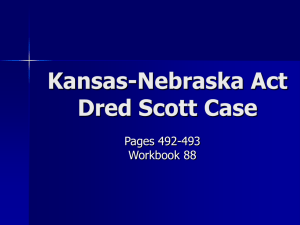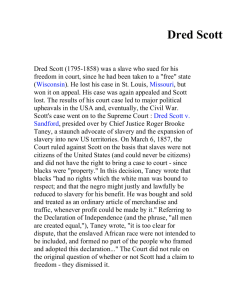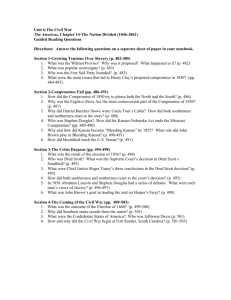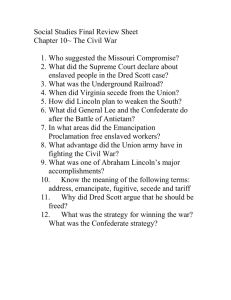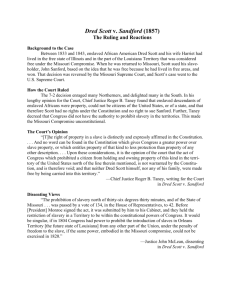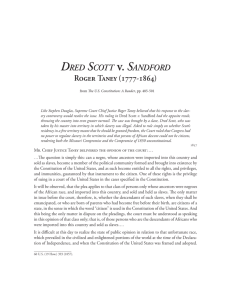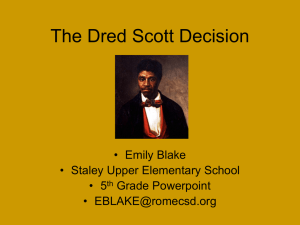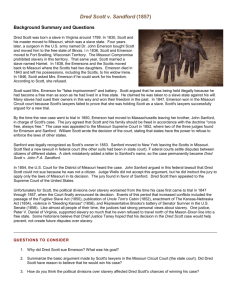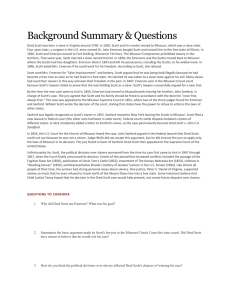Scott v. Sandford(1857) Chief Justice: Justice Roger B. Taney(1853
advertisement
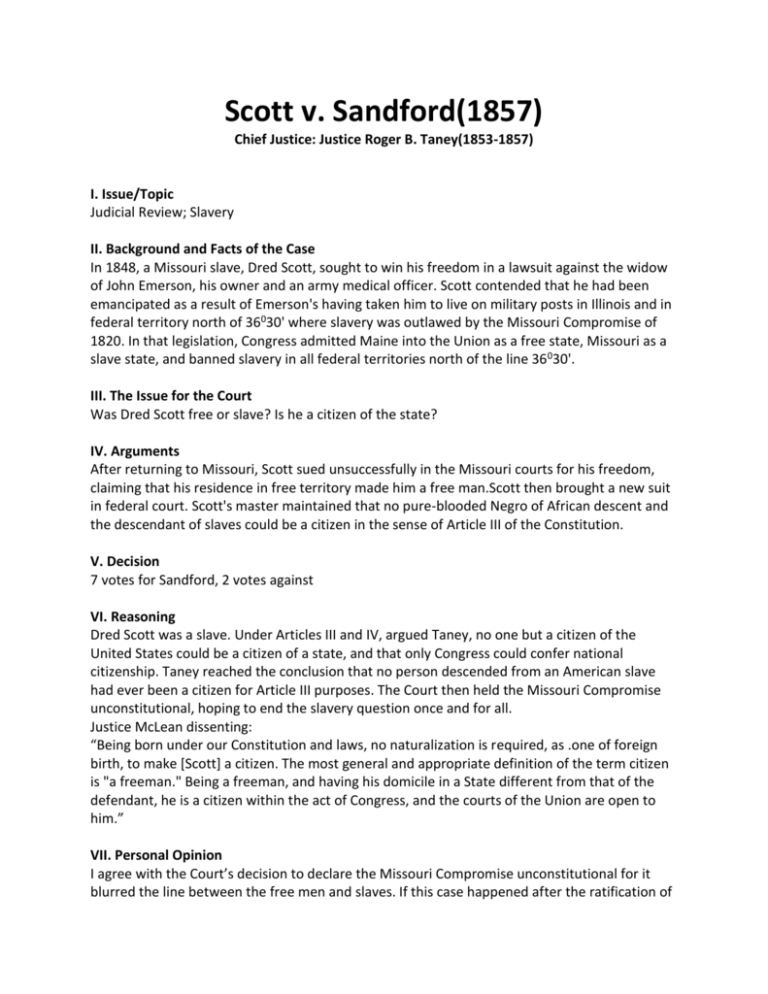
Scott v. Sandford(1857) Chief Justice: Justice Roger B. Taney(1853-1857) I. Issue/Topic Judicial Review; Slavery II. Background and Facts of the Case In 1848, a Missouri slave, Dred Scott, sought to win his freedom in a lawsuit against the widow of John Emerson, his owner and an army medical officer. Scott contended that he had been emancipated as a result of Emerson's having taken him to live on military posts in Illinois and in federal territory north of 36030' where slavery was outlawed by the Missouri Compromise of 1820. In that legislation, Congress admitted Maine into the Union as a free state, Missouri as a slave state, and banned slavery in all federal territories north of the line 36 030'. III. The Issue for the Court Was Dred Scott free or slave? Is he a citizen of the state? IV. Arguments After returning to Missouri, Scott sued unsuccessfully in the Missouri courts for his freedom, claiming that his residence in free territory made him a free man.Scott then brought a new suit in federal court. Scott's master maintained that no pure-blooded Negro of African descent and the descendant of slaves could be a citizen in the sense of Article III of the Constitution. V. Decision 7 votes for Sandford, 2 votes against VI. Reasoning Dred Scott was a slave. Under Articles III and IV, argued Taney, no one but a citizen of the United States could be a citizen of a state, and that only Congress could confer national citizenship. Taney reached the conclusion that no person descended from an American slave had ever been a citizen for Article III purposes. The Court then held the Missouri Compromise unconstitutional, hoping to end the slavery question once and for all. Justice McLean dissenting: “Being born under our Constitution and laws, no naturalization is required, as .one of foreign birth, to make [Scott] a citizen. The most general and appropriate definition of the term citizen is "a freeman." Being a freeman, and having his domicile in a State different from that of the defendant, he is a citizen within the act of Congress, and the courts of the Union are open to him.” VII. Personal Opinion I agree with the Court’s decision to declare the Missouri Compromise unconstitutional for it blurred the line between the free men and slaves. If this case happened after the ratification of the Civil War Amendments, fighting for Scott’s freedom and citizenship would have been much easier. VIII. Historical Significance of the Case The Dred Scott decision effectively ended the Missouri Compromise, hardening the political rivalry between North and South and paving the way for Civil War. It also upheld the status of blacks as slaves and therefore could not be considered citizens of the United States. IX. Citations "Dred Scott Case." PBS: Public Broadcasting Service. Web. 01 May 2011. <http://www.pbs.org/wgbh/aia/part4/4h2933.html>. "Dred Scott v. Sandford." TeachingAmericanHistory.org -- Free Seminars and Summer Institutes for Social Studies Teachers. Web. 01 May 2011. <http://teachingamericanhistory.org/library/index.asp?document=540>. The Oyez Project, Dred Scott v. Sandford , 60 U.S. 393 (1857) <http://www.oyez.org/cases/1851-1900/1856/1856_0>



